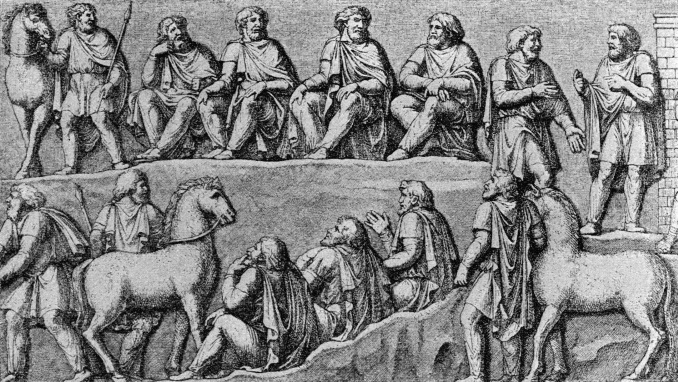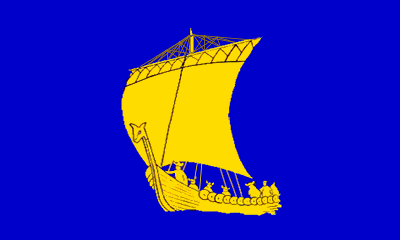Newly discovered Viking parliament "Thing" site may have been identified in Scotland
An item in yesterday's Scottish newspaper, the Scotsman, reports that a site where Norse leaders gathered for parliamentary meetings may have been discovered in Caithness (Scottish Gaelic: Gallaibh) in the northeast of Scotland. Features identified as resembling such a site have resulted in archeological work being undertaken at Thing’s Va Broch near Thurso.
A Thing or þing in Old Norse and Icelandic was the form of governing assembly found in the Scandinavian world that was also introduced into some Celtic societies. It is an assembly of the free men of a country or province and is located in specific sites identified for that purpose. At ‘the thing’, decisions were made and disputes settled. Although presided over by a king or chieftain in theory it was a democratic assembly in that each person had a vote. The decisions made were recited by the speaker to everyone at the thing. Probably the most famous thing site in existence today is the Manx Tynwald (Manx Gaelic: Tinvaal) said to be the oldest continuous parliament in the world. The name Tynwald is derived from the Old Norse word Þingvǫllr,meaning the field of the thing.
Thing associated sites and place names are located in Norway (Tingvoll), Sweden, Iceland (Þingvellir) and in the Faroe Islands (Tinganes). Then further south more such meeting places are found. This reflects the strong Norse influences that were spread by the Vikings through the northern and western islands of Scotland, parts of the Scottish mainland, then into the Irish Sea to the Isle of Man and Ireland from the 8th - 15th centuries. So as well as Tynwald on the Isle of Man we have Tingwall in Orkney and Shetland in which Tingaholm is also located. Dingwall in the Highlands of Scotland, Tinwald in Dumfries and Galloway in south-west Scotland and in Dublin there also used to be a site known as Thingmote that was used for the same purpose.







